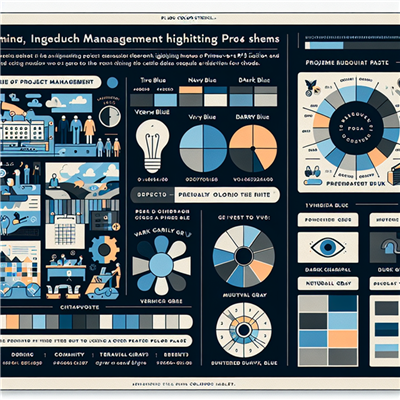
In today’s competitive and regulated industries, quality management is an essential focus, impacting everything from production efficiency to customer satisfaction and compliance. SAP QM (Quality Management) certification offers quality management professionals an opportunity to refine their skills, become more efficient, and add considerable value to their organizations. This article will outline the primary benefits of SAP QM certification and explain why it’s a powerful asset for those seeking growth and advancement in quality management.
Understanding SAP QM and Its Role in Quality Management
SAP Quality Management (SAP QM) is an integrated module in the SAP ERP (Enterprise Resource Planning) system that aids in implementing and monitoring quality management processes. It covers a wide array of functions, such as:
- Quality inspection
- Quality planning
- Quality control
- Audit management
- Compliance with regulatory standards
SAP QM certification verifies a professional’s ability to effectively use SAP’s quality management tools to enhance operational efficiency and ensure that products meet or exceed required quality standards. The certification is particularly relevant in industries like manufacturing, pharmaceuticals, automotive, and consumer goods, where quality is paramount.
Benefits of SAP QM Certification for Quality Management Professionals
1. Enhanced Career Prospects
In the quality management field, SAP QM certification is highly respected and recognized worldwide. This certification signals that you have specialized knowledge and practical skills in SAP’s quality management tools. With this credential, quality management professionals stand out among their peers, which can lead to faster career advancement, more job offers, and increased opportunities in management roles.
Career Pathways for SAP QM-Certified Professionals:
- Quality Control Specialist
- Quality Assurance Manager
- Compliance Manager
- SAP QM Consultant
- Operations Manager
- Quality Inspector
2. In-Depth Knowledge of Quality Management Processes
SAP QM certification training provides in-depth knowledge of quality management processes, from quality inspection to planning and control. Certification courses cover various scenarios and offer hands-on experience in managing quality data, conducting inspections, and maintaining compliance. This expertise is crucial for reducing quality issues and minimizing waste during production, making certified professionals valuable assets for organizations looking to streamline their quality management practices.
3. Ability to Drive Regulatory Compliance
In highly regulated industries, maintaining compliance is critical. SAP QM equips professionals with tools and techniques for documenting, reporting, and ensuring adherence to industry regulations. With SAP QM certification, professionals gain a strong understanding of compliance protocols, which is essential for passing audits and meeting regulatory requirements. This can save companies from costly penalties and protect their reputation.
Industries Where SAP QM Certification Is Particularly Beneficial:
- Pharmaceuticals
- Medical Devices
- Automotive
- Aerospace
- Food and Beverage
4. Improvement in Quality Inspection and Audit Management
SAP QM-certified professionals learn to use specialized tools for conducting quality inspections and managing audits, two vital components in quality control. Certification helps professionals understand the full lifecycle of quality inspection processes, from sampling and data collection to reporting and corrective action. This knowledge allows professionals to establish proactive measures for quality assurance and ensures that audits are handled efficiently, reducing the risk of future compliance issues.
5. Increased Efficiency and Productivity
One of the biggest advantages of SAP QM is its ability to centralize and automate quality management tasks. Certified professionals are trained to set up and configure quality management processes within SAP, which can lead to reduced errors, streamlined operations, and greater productivity. By automating repetitive tasks and using SAP QM for real-time quality monitoring, professionals can improve overall productivity and reduce production downtime.
Examples of Efficiency Gains with SAP QM Certification:
- Faster resolution of quality issues through integrated data tracking
- Automated alerts for quality deviations
- Streamlined reporting and analysis for faster decision-making
- Reduced manual data entry errors
6. Enhanced Data Analysis and Reporting Skills
SAP QM provides various tools for data collection, analysis, and reporting that are essential for tracking and maintaining quality standards. Certification in SAP QM equips professionals with the skills needed to analyze quality data effectively, identify trends, and generate reports for strategic decision-making. This analytical skill is invaluable for optimizing processes and making data-driven decisions that enhance product quality and customer satisfaction.
7. Better Risk Management and Prevention
Quality management is not only about ensuring product quality but also about identifying and managing risks before they become problems. SAP QM training covers risk management principles, such as Failure Mode and Effects Analysis (FMEA), root cause analysis, and corrective/preventive actions (CAPA). These skills are essential for implementing risk management practices that proactively address issues, reduce defects, and ensure products meet required standards.
8. Improved Collaboration Across Departments
Quality management often requires close collaboration with departments like production, procurement, and logistics. SAP QM integrates with other SAP modules like SAP MM (Materials Management), SAP PP (Production Planning), and SAP SD (Sales and Distribution), making it easier to manage quality across departments. With certification, professionals can understand the nuances of these integrations and facilitate better communication and collaboration within their organization.
9. Increased Salary Potential and Job Security
SAP-certified professionals often command higher salaries compared to their non-certified counterparts. Companies are willing to invest in professionals who can ensure product quality, compliance, and efficient processes. For those who hold an SAP QM certification, this often translates into better compensation, job security, and long-term stability in their careers.
Salary Range for SAP QM-Certified Professionals: While exact figures vary by location and experience, SAP QM-certified professionals can expect to earn competitive salaries that reflect their specialized skills in quality management and compliance.
10. Potential for Freelance or Consulting Opportunities
With SAP QM certification, professionals can explore freelance or consulting roles, helping multiple companies implement and optimize their quality management systems. The demand for consultants with SAP QM expertise is growing, especially for those who can guide companies through digital transformations and help them achieve higher quality standards. For professionals seeking flexibility, this certification opens the door to lucrative freelance opportunities.
How to Get Started with SAP QM Certification
To become SAP QM certified, professionals typically need to complete an SAP QM training course and pass the certification exam. SAP offers various learning pathways, including in-person training, online courses, and e-learning materials. While SAP QM certification exams can be challenging, they validate your skills in implementing, managing, and optimizing quality management systems within SAP.
Conclusion: The Strategic Advantage of SAP QM Certification
In an industry where quality is paramount, SAP QM certification offers quality management professionals a robust foundation in SAP’s quality management systems, along with hands-on skills in inspection, compliance, and process improvement. From career advancement to enhanced efficiency and better compliance management, the benefits of SAP QM certification are numerous. For any quality management professional looking to enhance their expertise and become a valuable asset in their organization, SAP QM certification is a strategic investment that can pay dividends in career growth, job stability, and increased earning potential.
All these benefits make the SAP QM Certification a valuable investment for Quality Management Professionals. If you are considering pursuing this certification, Koenig Solutions, a leading IT training company, offers comprehensive training courses tailored to suit your needs.







COMMENT